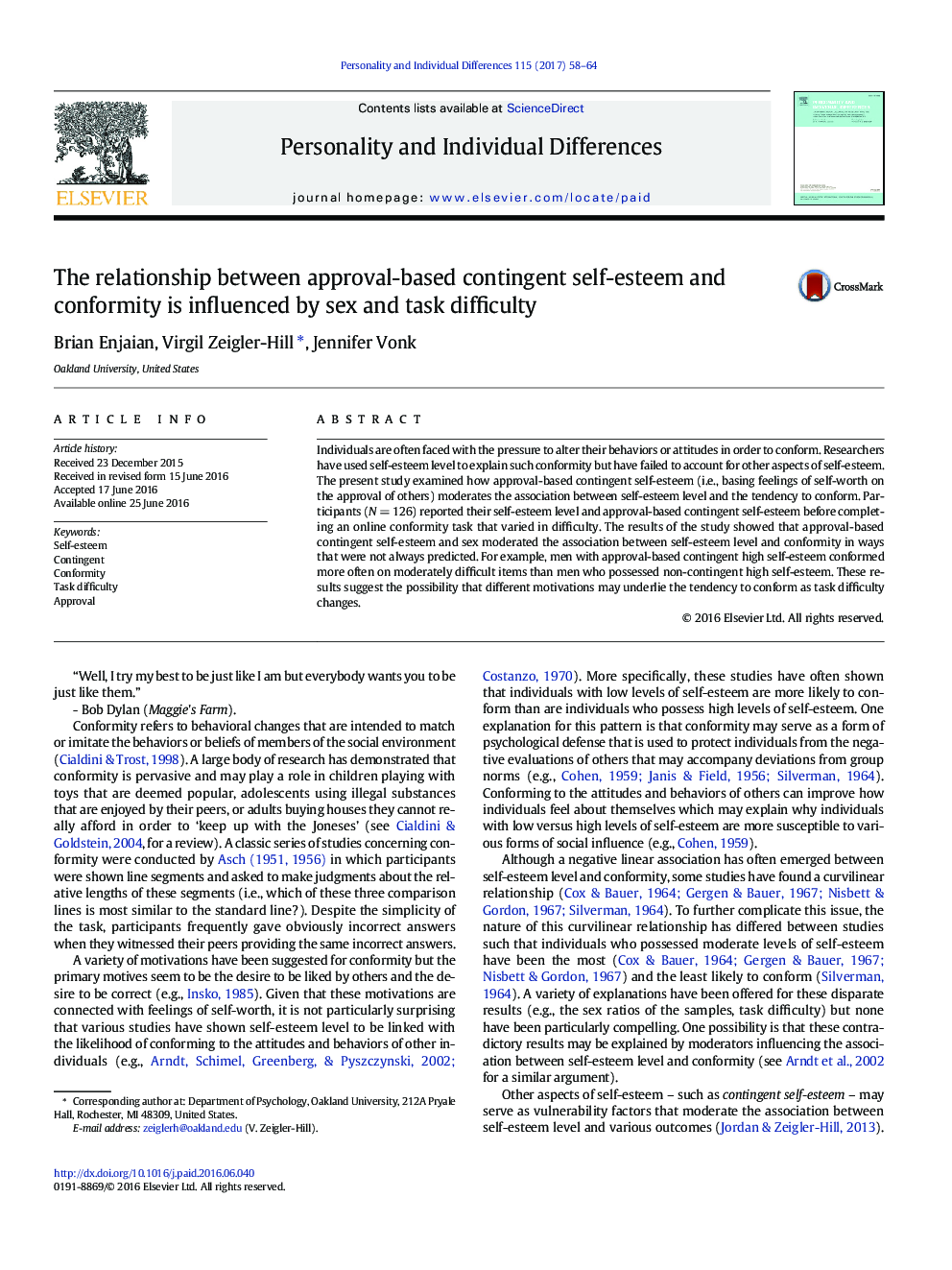| Article ID | Journal | Published Year | Pages | File Type |
|---|---|---|---|---|
| 5035842 | Personality and Individual Differences | 2017 | 7 Pages |
Individuals are often faced with the pressure to alter their behaviors or attitudes in order to conform. Researchers have used self-esteem level to explain such conformity but have failed to account for other aspects of self-esteem. The present study examined how approval-based contingent self-esteem (i.e., basing feelings of self-worth on the approval of others) moderates the association between self-esteem level and the tendency to conform. Participants (NÂ =Â 126) reported their self-esteem level and approval-based contingent self-esteem before completing an online conformity task that varied in difficulty. The results of the study showed that approval-based contingent self-esteem and sex moderated the association between self-esteem level and conformity in ways that were not always predicted. For example, men with approval-based contingent high self-esteem conformed more often on moderately difficult items than men who possessed non-contingent high self-esteem. These results suggest the possibility that different motivations may underlie the tendency to conform as task difficulty changes.
